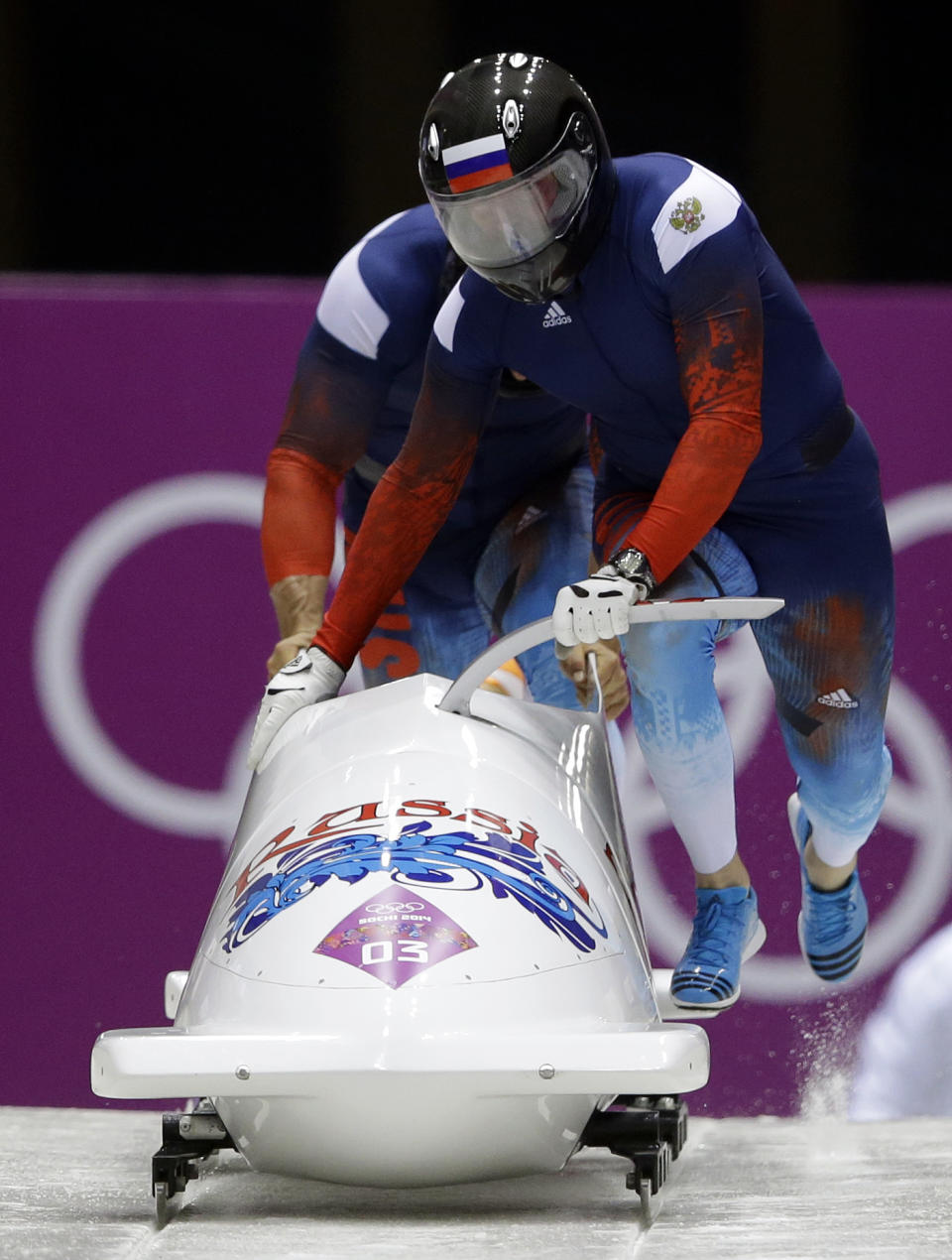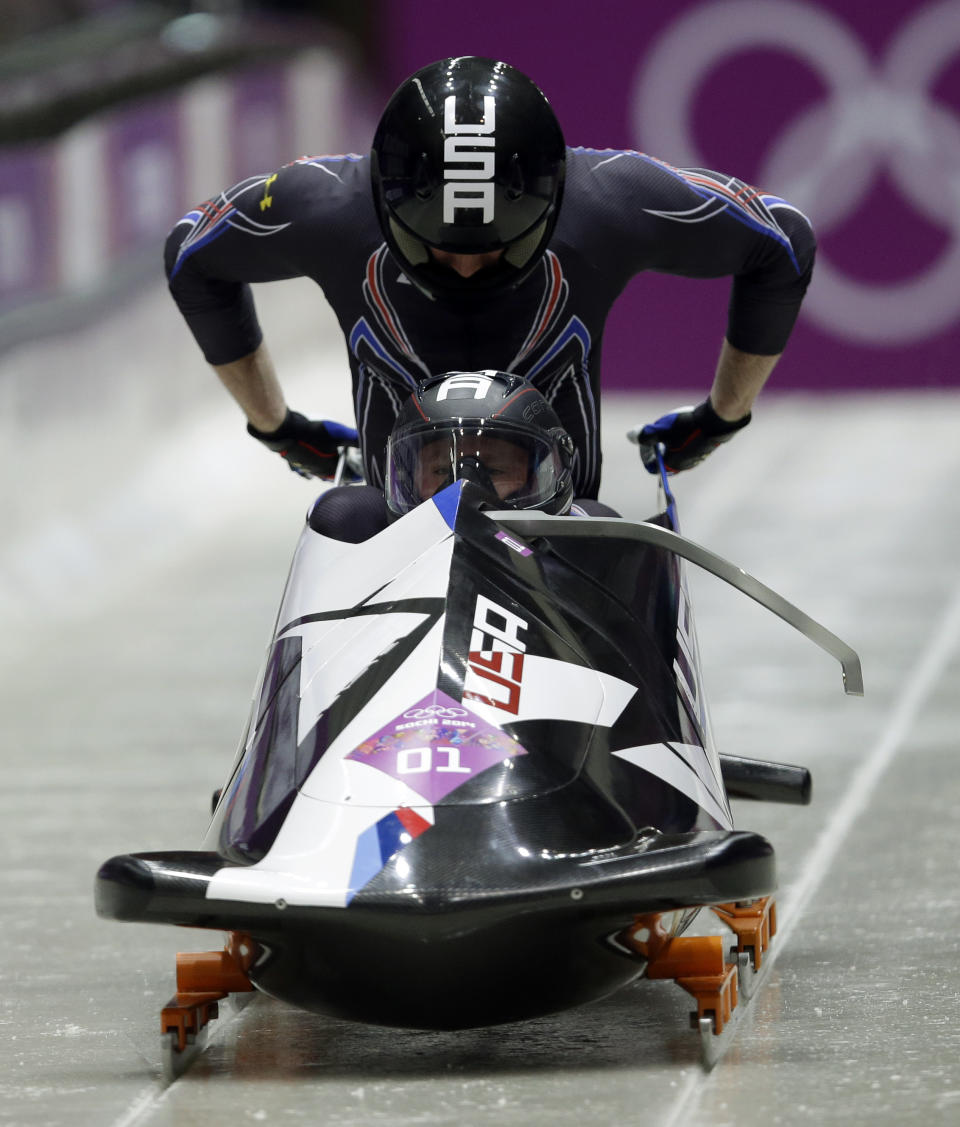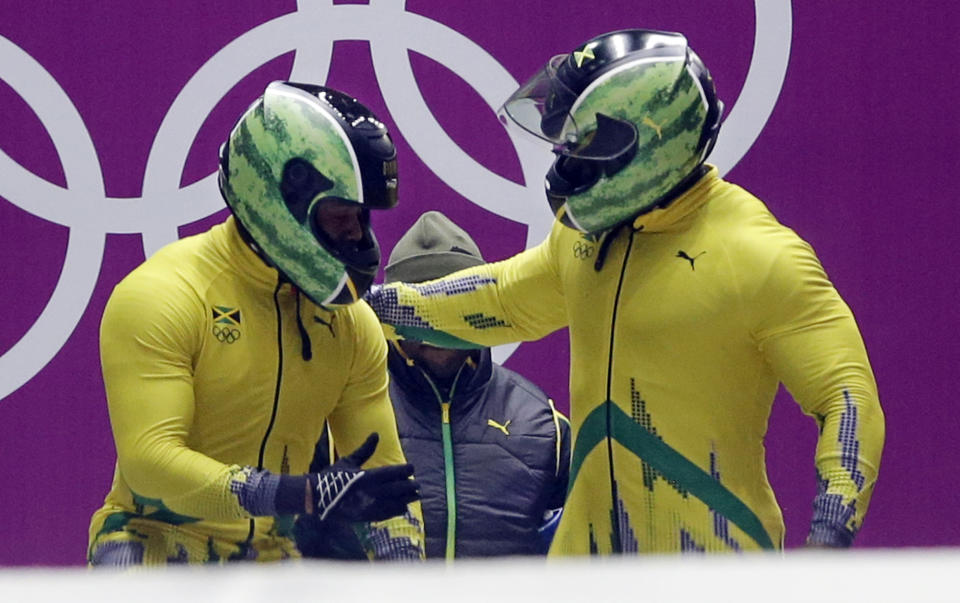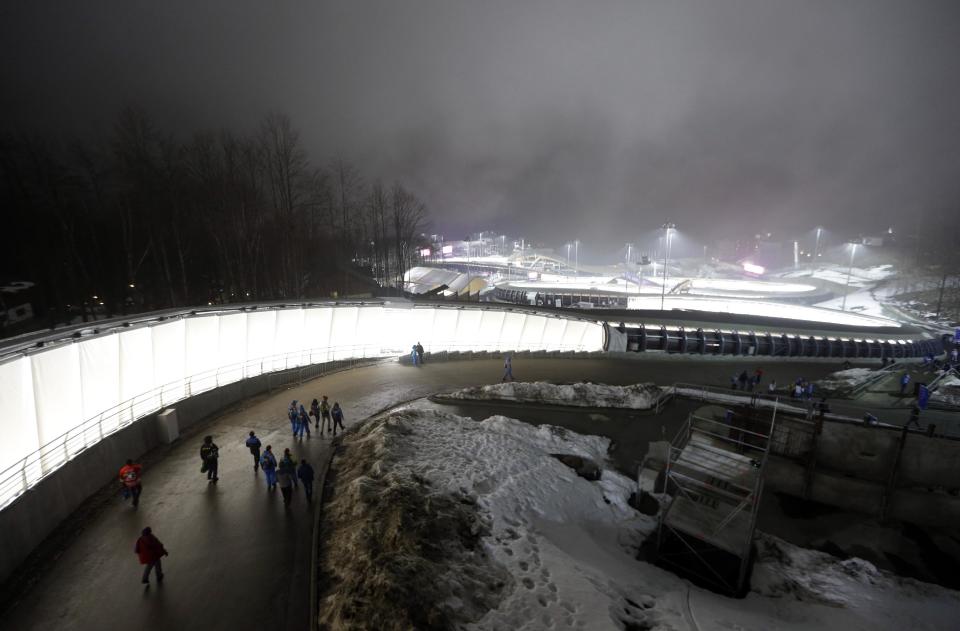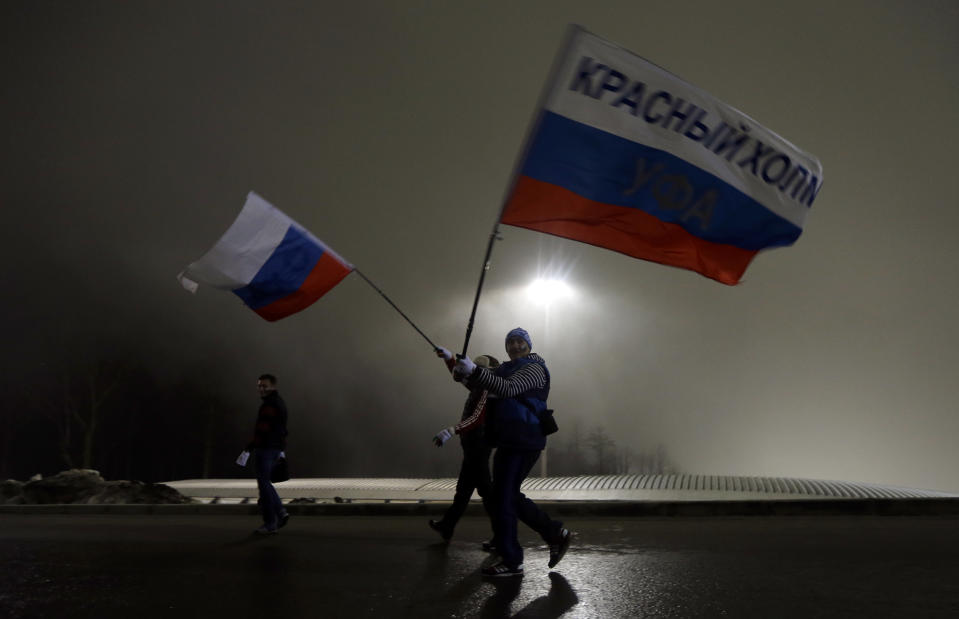Russia's Zubkov leads after 2 runs of 2-man bob
KRASNAYA POLYANA, Russia (AP) — Olympic two-man bobsled has become one man's race.
Out of the fog, Alexander Zubkov emerged as the clear leader.
Russia's Zubkov set a track record on his first run, and then opened some distance on the rest of a decorated field Sunday with a second crisp, clean trip down his home track to open a commanding lead at the halfway point over Switzerland's Beat Hefti and Steven Holcomb of the United States.
Zubkov is two runs away from winning Russia's first gold medal in two-man since 1988, and unless he makes a major mistake Monday, it might be time to start chilling the vodka for a celebratory toast.
"I am very satisfied," said Zubkov, who won bronze four years ago at the Vancouver Games. "And we will compete at the appropriate level tomorrow."
If he does, the gold's all his.
Zubkov completed his two downhill descents on the fog-cloaked Sanki Sliding Center track in 1 minute, 52.82 seconds. He leads Hefti by 0.32 seconds and 0.36 seconds over Holcomb of Park City, Utah. In a sport where hundredths of a second typically separate first, second and third, Zubkov is running away.
He led Holcomb, the defending Olympic champ in four-man, by just 0.09 seconds after his first run, but after Alexey Voevoda gave him a strong push, Zubkov stayed away from any trouble his second time down the winding, 17-curve mountain circuit and gave himself a little cushion going into Monday's two heats.
"I said the home team's going to be tough to beat — and as they showed, they're tough to beat," Holcomb said. "They know this track better than anybody and they can be consistent."
As he crossed the finish line, Zubkov punched his left fist into the frosty air as his countrymen waved flags and chanted in celebration.
Hefti looked locked in several hours before his first heat, wearing a pair of headphones as he walked the track with brakeman Alex Baumann and accompanied by a pair of Swiss coaches. The four-time Olympian won bronze in 2002 and 2006 as a push athlete, but he's now in the front seat.
He was the gold-medal favorite in Vancouver, but was forced to withdraw from the two-man field after sustaining a concussion in a training crash. For him to win now, Hefti has to hope Zubkov comes back to the pack.
"Alexander Zubkov is very strong," Hefti said. "I hope we can be there with him. Tomorrow we will fight again."
Holcomb will certainly go down swinging.
After exorcising wintry demons in Vancouver in 2010 by ending the U.S. team's 62-year gold medal drought in four-man, Holcomb and Steve Langton of Melrose, Mass., are aiming to stop a 78-year-old golden dryspell for the Americans in two-man. The last U.S. two-man medal of any hue came in 1952.
"We're four-hundreths out of second, eight-hundreths out of fourth," Holcomb said. "It's going to be a battle to the end, but we're ready."
American Cory Butner was in third after the first heat, but couldn't keep his sled straight and finished his second run in 57.11 — 16th best — and dropped all the way to 11th.
"We're not done," Butner said.
First up in the first heat, Holcomb and Langton, who finished 12th on the Sanki track in a World Cup event last year, completed their run in 56.34 seconds, breaking the track record Hefti set a year ago.
Hefti's mark stood for 365 days. Holcomb's lasted about four minutes.
Hugging every corner and avoiding any scrapes against the frozen walls, Zubkov and Voevoda tore down the mountainside course in 56.25 seconds, delivering a statement to the rest of the field that they intend to defend home ice.
Shortly after he and his teammates arrived in Russia, Holcomb proclaimed, "We're the team to beat," a comment that didn't come off as pompous because it's mostly true.
The Americans have moved in among the bobsled's elite. Since winning four-man in Whistler, they added BMW as a partner, sponsor and designer, and have focused their energy over the past four years to figuring out how to finish on top in two-man.
Jamaica's two-man team, back in the Olympics for the first time since 2002, is in 32nd place — 4.41 seconds behind Zubkov. Driver Winston Watts and Marvin Dixon had to raise money in the past month to pay for new runners, and their visit got off to a rough start when they arrived without their equipment, which was briefly lost in transit.

